Key Customer Service Skills Every Employer Looks For

Employers value key customer service skills such as effective communication, problem-solving, empathy, patience, adaptability, dependability, technical proficiency, and teamwork. These skills help you create positive customer experiences and build trust. Strong customer service skills set you apart in any customer-facing role.
| Statistic Description | Percentage / Multiplier |
|---|---|
| Global employers who consider communication the most desirable skill | 57% |
| Global recruiters prioritizing verbal communication | 55% |
| Business leaders who believe effective communication boosts productivity | 64% |
| Increase in team productivity due to effective communication | Up to 25% |
| Employees feeling included in detailed communication reporting increased productivity | Nearly 5 times more likely |
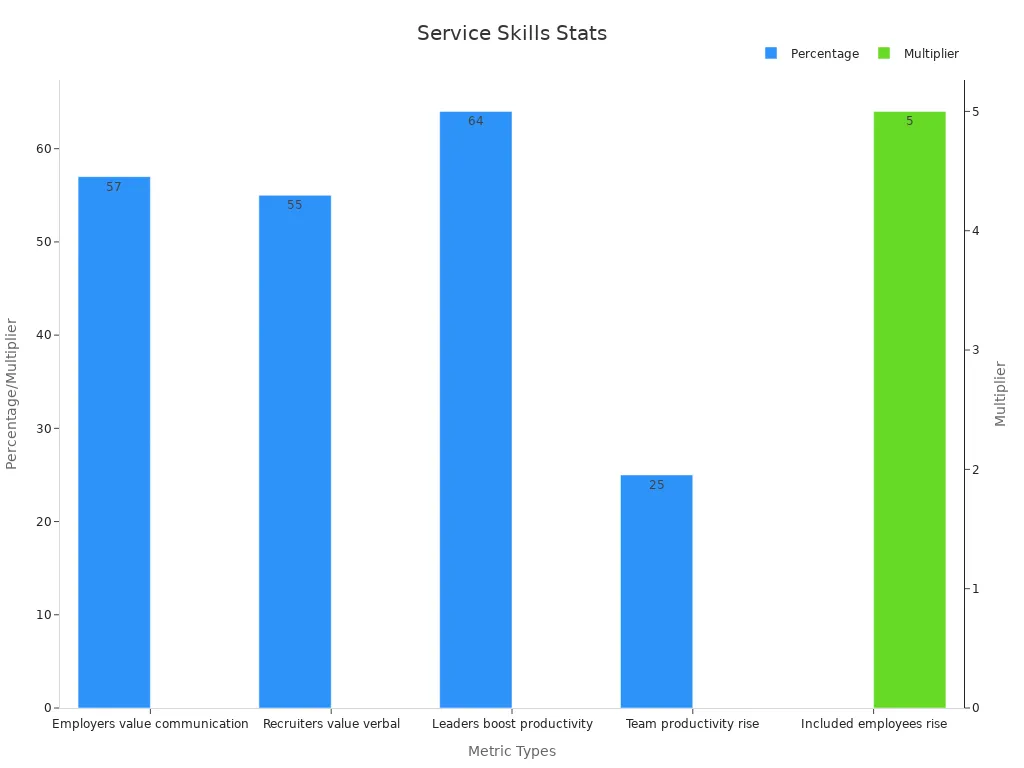
Sobot and Sobot AI offer real-world tools like the Voice/Call Center to help you practice these key customer service skills every day. When you focus on dependability and customer service, you show employers you are ready for success.
Effective Communication

Effective communication forms the backbone of all customer service skills. When you interact with customers, your ability to share information clearly and listen actively shapes the entire customer experience. Companies that master communication and interpersonal skills see higher customer satisfaction and loyalty.
Sobot’s omnichannel and Voice/Call Center solutions help you connect with customers across phone, chat, email, and social media. These tools let you manage every customer interaction in one place, making it easier to deliver consistent service. Brands like Samsung and Starbucks show how seamless communication across channels leads to better service and stronger customer relationships. Research shows that 78% of customers expect to use their preferred channels, and 67% want to avoid repeating their issues. With Sobot’s unified workspace, you can meet these expectations and provide a smooth customer journey.
Verbal and Written Skills
You need strong verbal and written skills to succeed in customer service. Clear speech and well-written messages help customers understand solutions quickly. Sobot’s Voice/Call Center gives you tools to manage calls, record conversations, and review transcripts. This helps you improve your communication and respond to customers with confidence.
Tip: Use simple words and short sentences when talking or writing to customers. This reduces confusion and builds trust.
By 2025, almost all businesses will use AI to personalize customer communication. Sobot’s AI-powered chatbots and voice assistants help you deliver fast, accurate responses, making every customer feel valued.
Active Listening
Active listening means giving your full attention to the customer. You listen, ask questions, and confirm what the customer needs. This skill helps you solve problems faster and avoid misunderstandings. Research from Bain & Company shows that companies who listen well to customer feedback grow 4–8% faster than others. When you practice active listening, you improve the customer experience and build loyalty.
- Active listening reduces errors and speeds up problem-solving.
- It helps you find hidden issues and show customers you care.
- Customers who feel heard are more likely to return and recommend your service.
Sobot’s omnichannel platform supports active listening by keeping all customer information in one place. You can review past conversations and respond with empathy, making every customer interaction count.
Problem-Solving
Problem-solving stands out as one of the most important customer service skills. You face new challenges every day in customer service. Quick and creative problem-solving helps you turn difficult situations into positive experiences. When you solve problems fast, you build trust and keep customers happy. According to a Microsoft report, 96% of customers say good service is key to their loyalty. You need strong problem-solving skills to meet these high expectations.
Identifying Issues
You must first identify the real issue before you can fix it. Many customers may not explain their problems clearly. You need to ask the right questions and listen carefully. Sobot’s unified workspace gives you access to all customer information in one place. This makes it easier to spot patterns and understand the root cause of each service request. When you use Sobot’s AI-powered tools, you can quickly review past interactions and find hidden issues. This saves time and helps you deliver better service.
Tip: Always confirm your understanding of the customer’s problem before moving forward. This step prevents mistakes and shows you care.
Creative Solutions
Once you know the problem, you need to find the best solution. Creative problem-solving means thinking beyond standard answers. You might need to suggest new ways to fix an issue or offer a unique service option. Sobot’s AI-powered Voice/Call Center supports you by suggesting solutions based on similar cases. This feature helps you solve problems faster and with more confidence. When you use technology to support your customer service skills, you improve both speed and quality.
- Creative problem-solving leads to higher customer satisfaction.
- Fast and accurate solving of issues increases loyalty and repeat business.
- Sobot’s tools help you handle even complex service challenges with ease.
Empathy and Patience
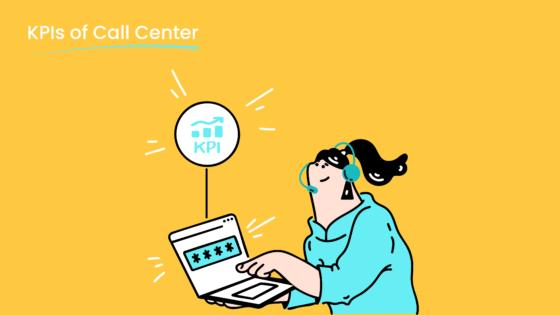
Empathy and patience stand at the heart of excellent customer service. You need these soft skills to connect with every customer, especially when emotions run high. When you show empathy, you recognize the emotional state of the customer and respond with understanding. Patience allows you to listen fully and give each customer the time they need. These customer service skills build trust and lead to higher customer satisfaction.
Understanding Customers
You must understand what your customer feels and why. Emotional intelligence helps you read emotional cues and respond with care. Research shows that compassionate and timely care makes customers feel heard, respected, and valued. This approach increases satisfaction and builds trust. When you use emotional intelligence, you strengthen the relationship between you and the customer. Trust is essential for long-term loyalty. Customers who trust your service are more likely to return and recommend your company.
- Compassionate care leads to higher satisfaction and trust.
- Empathetic communication encourages customers to share their needs.
- Trust reduces emotional barriers and increases loyalty.
Sobot’s solutions, like the unified workspace and AI-powered chatbots, help you access customer history and context. This support lets you respond with empathy, even during busy times.
Staying Calm
You face stressful situations in customer service every day. Staying calm shows emotional intelligence and helps you manage emotional conversations. When you remain patient, you can solve problems without letting emotions take over. Studies show that empathy-driven strategies, often shared through customer stories, drive measurable business growth. For example, OPPO used Sobot’s chatbot and ticketing system to handle high volumes of service requests. By combining human empathy with AI support, OPPO’s team achieved a 94% positive feedback rate and a 57% increase in repurchase rate. This success proves that emotional intelligence and patience lead to better outcomes for both customers and businesses.
Tip: Take a deep breath before responding to an upset customer. This pause helps you stay calm and show empathy.
Empathy and patience are not just soft skills—they are essential customer service skills that drive customer satisfaction and loyalty. Sobot’s tools help you practice these skills every day, making your service stand out.
Adaptability and Flexibility
In today’s fast-paced world, you must show adaptability and flexibility to succeed in customer service. Every day, customer needs change. New channels appear, and expectations rise. You need to adjust quickly to keep up. Companies that embrace adaptability see better results. Omnichannel strategies help you centralize customer data, integrate systems, and optimize resources. This approach streamlines workflows, reduces costs, and lets you make faster decisions. You can respond to customer requests in real time and deliver a seamless experience across every channel.
Handling Change
You face change in customer service all the time. New technologies, updated policies, and shifting customer preferences require you to stay alert. Sobot’s unified workspace gives you all the tools you need in one place. You can switch between phone, chat, email, and social media without losing track of customer information. Automation features help you handle repetitive tasks, so you can focus on complex customer issues. With Sobot, you adapt to new workflows and channels with ease. Brands like Starbucks and Nike use similar strategies to meet customers where they are, improving convenience and satisfaction.
Tip: Stay open to learning new tools and processes. This mindset helps you grow and deliver better customer service.
Serving Diverse Customers
Every customer is unique. You must adjust your service style to fit different personalities, cultures, and needs. Adaptability helps you connect with each customer and solve their problems. Omnichannel solutions let you reach customers on their preferred platforms, whether it’s social media, phone, or chat. Technologies like AI-driven analytics and real-time data synchronization support your ability to respond quickly and accurately. Sobot’s automation and integration features make it easy to personalize service for every customer. When you show adaptability, you reduce friction and increase conversion rates. Leading brands prove that flexible, cross-channel engagement leads to higher customer satisfaction and loyalty.
- Centralized customer data improves response times.
- Real-time analytics help you understand customer needs.
- Flexible service options boost operational efficiency.
You can read more about omnichannel customer service strategies in this Harvard Business Review article.
Technical Proficiency
Technical proficiency has become a must-have for anyone in customer service. You need to feel comfortable using digital tools, AI, and integrated systems to deliver fast, accurate support. Modern customer service skills go beyond talking to customers. You must know how to use technology to solve problems and improve every service interaction.
Using Customer Service Tools
You work with many tools every day. These include chatbots, ticketing systems, and unified workspaces. When you master these tools, you save time and help more customers. AI-powered platforms now resolve up to 30% of support volume, letting you focus on complex customer needs. AI also saves time by analyzing feedback (35% faster), generating responses (34% faster), and summarizing conversations (25% faster).
- AI-driven QA and coaching tools boost agent responsiveness and team efficiency by 42%.
- AI reduces first response times by 37% and speeds up ticket resolution by 52%.
- Companies see up to 68% fewer staffing needs during peak times.
You can see how these improvements make your job easier and help you deliver better service.
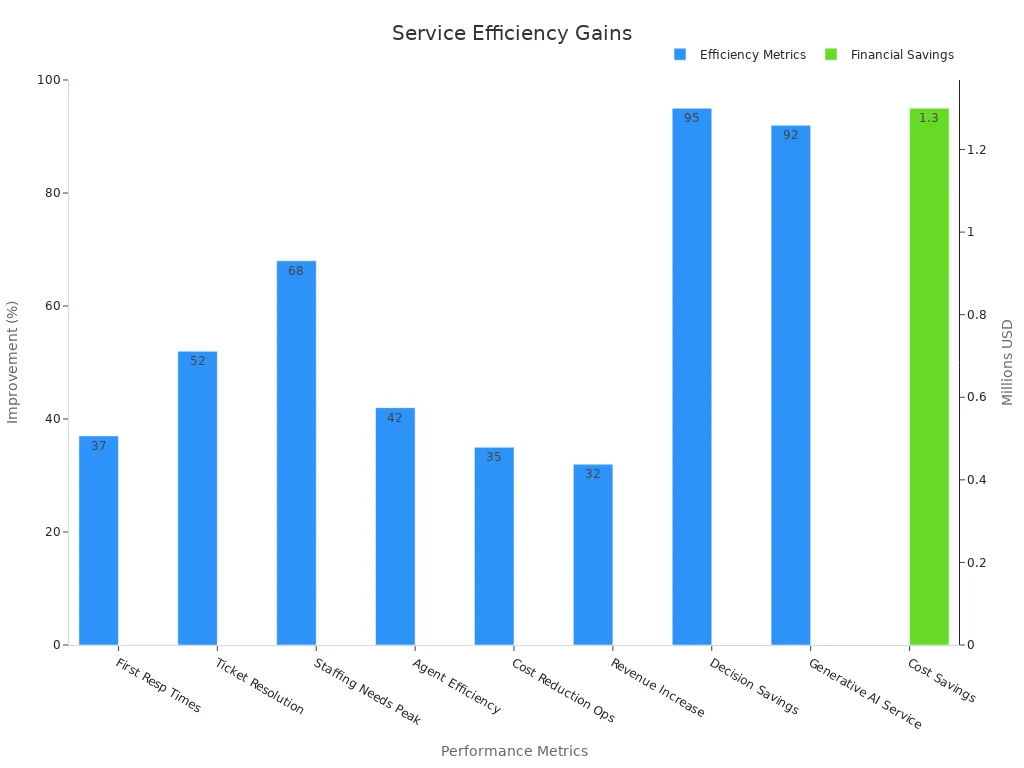
Tip: Stay curious and keep learning new features in your customer service tools. This habit will help you adapt to new technology and serve customers better.
Leveraging Sobot Voice/Call Center
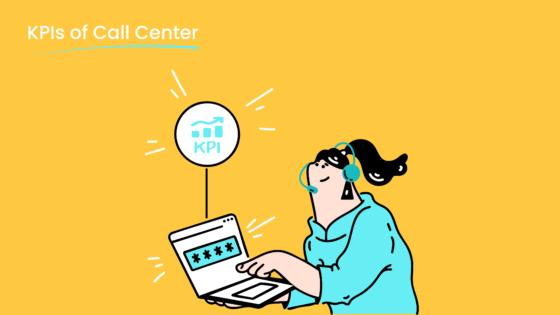
Sobot’s Voice/Call Center gives you a powerful platform to manage calls, messages, and customer data in one place. You can use features like intelligent IVR, AI-powered voicebots, and real-time analytics to handle every customer request with confidence. The unified workspace lets you switch between channels without losing track of customer information. Sobot’s system supports global numbers and offers 99.99% uptime, so you never miss a service opportunity.
When you use Sobot’s Voice/Call Center, you combine technical skills with emotional intelligence. You respond faster, solve problems more accurately, and create a seamless experience for every customer. Most decision-makers (95%) report cost and time savings with AI, and 92% believe generative AI improves customer service. Sobot helps you stay ahead in a world where technology and service go hand in hand.
Teamwork and Collaboration
Great customer service depends on teamwork and collaboration. When you work together with your team, you solve problems faster and deliver better results for every customer. You share ideas, support each other, and make sure no customer request gets missed. Companies that focus on teamwork see higher customer satisfaction and stronger relationships.
Working with Colleagues
You need to work closely with your colleagues to provide excellent service. Cross-functional collaboration lets you connect with team members in different roles and time zones. Frequent meetings help everyone share ideas, solve conflicts, and stay focused on customer needs. When you align your goals, such as linking customer satisfaction to sales targets, you create a unified approach. A Stanford study found that working collaboratively increases commitment to tasks by 64% compared to working alone. This boost in engagement leads to better service and happier customers.
Sobot’s unified workspace makes teamwork easier. You can see all customer interactions, share notes, and update each other in real time. Presence technology shows who is available, so you can get help quickly and avoid delays. This setup keeps your team connected and responsive, no matter where you work.
Tip: Use instant messaging and video calls to check in with your team. This helps you solve issues quickly and keeps everyone on the same page.
Sharing Knowledge
Sharing knowledge is key to strong collaboration. When you share what you know, you help your team solve customer problems faster. Collaboration platforms let you edit documents together, give instant feedback, and track project progress. Unified communication tools make it easy to manage all customer interactions in one place, which leads to more effective and personalized service.
Sobot’s analytics and unified workspace support knowledge sharing by storing customer data, chat histories, and service notes. You can review past solutions, learn from your team’s experience, and avoid repeating mistakes. Studies show that 83% of workers understand project status better when using project management tools. This clarity helps you deliver consistent service and build trust with every customer.
Note: Poor collaboration can cause you to lose up to three hours of productivity each week. Make sharing knowledge a daily habit to keep your service strong.
Teamwork and collaboration, supported by the right technology, help you deliver the best customer service possible. Sobot gives you the tools to connect, share, and succeed together.
Key Customer Service Skills for Success
Essential Soft Skills
You need more than technical knowledge to excel in customer service. Soft skills shape every customer experience and set you apart as a leader. These skills include empathy, active listening, ethics, and a people-first attitude. When you use soft skills, you create trust and show respect for every customer. Studies show that 89% of companies compete mainly on customer experience (Gartner). You can see how soft skills drive customer loyalty and satisfaction.
Note: Soft skills like patience and clear communication help you handle tough situations and build strong relationships.
Sobot’s unified workspace and AI-powered tools support you in practicing these key customer service skills. You can access customer history, review feedback, and use real-time analytics to improve your service. This approach helps you grow your leadership and deliver a better customer experience every day.
Building Relationships
Building relationships stands at the core of customer service success. You must connect with each customer and understand their needs. Relationship-building leads to repeat business and stronger customer loyalty. Leadership in service means guiding customers through challenges and making them feel valued.
- You can use Sobot’s omnichannel platform to keep track of every customer interaction.
- Real-time data helps you personalize each service and strengthen the customer experience.
- Sharing knowledge with your team boosts leadership and improves service outcomes.
A people-first attitude creates a positive environment for both customers and your team. When you focus on relationships, you turn every service moment into an opportunity for growth and loyalty.
| Soft Skill | Impact on Service | Sobot Solution Example |
|---|---|---|
| Empathy | Higher satisfaction | Unified workspace for context |
| Ethics | Builds trust | Secure data handling |
| Leadership | Inspires teams | Real-time analytics and insights |
Tip: Always follow up with customers after solving their issues. This simple step shows leadership and builds lasting relationships.
You know that employers seek customer skills like communication, empathy, adaptability, and teamwork. Employers want you to deliver a customer experience that builds loyalty. Sobot’s Voice/Call Center helps you practice these customer skills every day. Employers see that customer engagement improves with technology. Sobot’s AI Copilot reduces customer agent workload by 60%. Employers report a 35% increase in Net Promoter Score and a 15% boost in customer conversion rate. You can see the impact in the chart below:
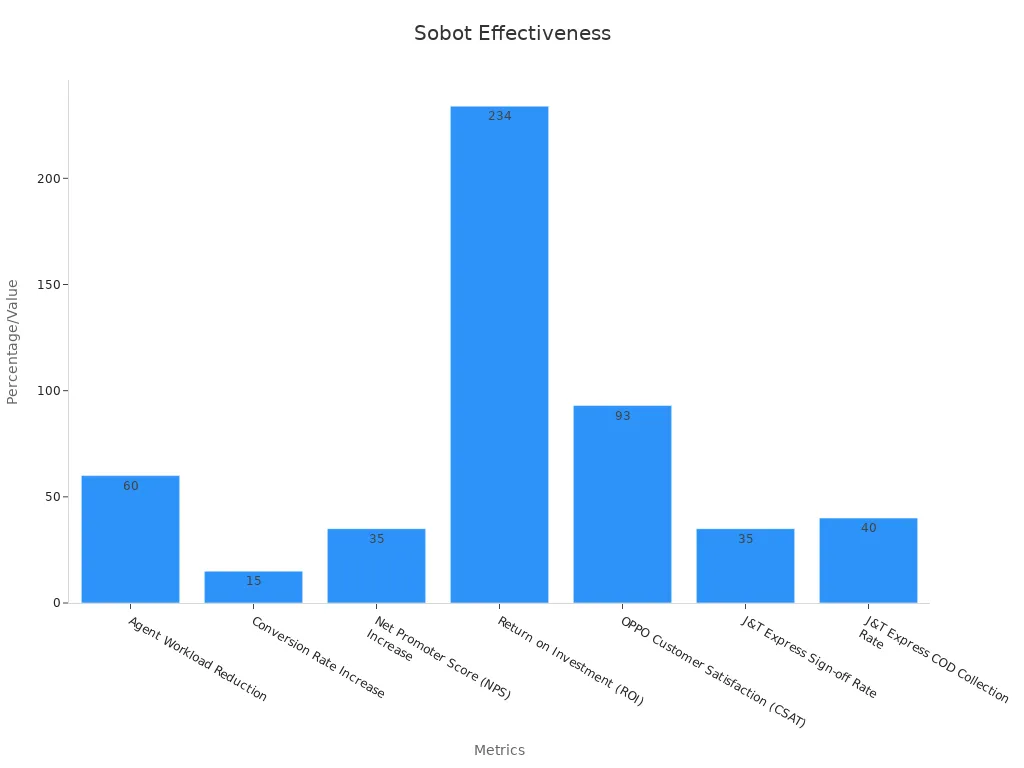
Employers value customer skills supported by continuous learning. Explore Sobot’s solutions to strengthen your customer abilities and stand out to employers.
FAQ
What are the most important customer service skills employers look for?
Employers value customer service skills like effective communication, problem-solving, empathy, patience, adaptability, technical proficiency, and teamwork. These skills help you deliver excellent support and build trust. Sobot’s solutions help you practice and improve these customer service skills every day.
How can I improve my customer service skills quickly?
You can improve customer service skills by practicing active listening, learning new tools, and seeking feedback. Sobot’s unified workspace and AI-powered training modules help you develop these skills faster. Regular practice and real-time analytics boost your confidence and performance.
Tip: Set daily goals for each customer service skill you want to strengthen.
Why do technical skills matter in customer service roles?
Technical skills help you use digital tools, manage customer data, and resolve issues efficiently. With Sobot’s Voice/Call Center, you handle calls, track tickets, and access customer history in one place. This technical proficiency leads to faster solutions and higher customer satisfaction.
How does Sobot support teamwork and collaboration in customer service?
Sobot’s unified workspace lets you share notes, review chat histories, and update your team in real time. This collaboration improves customer service skills across your team. Studies show that strong teamwork increases productivity by up to 25% (source).
Note: Use instant messaging to keep your team connected and responsive.
See Also
How AI Agents Are Transforming Customer Support Services
Effective Strategies For Managing Call Center Quality
The Best Customer Service Software To Use In 2024
